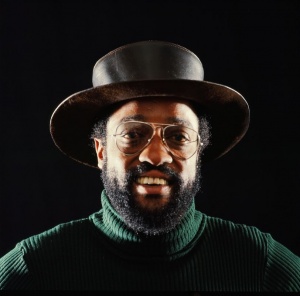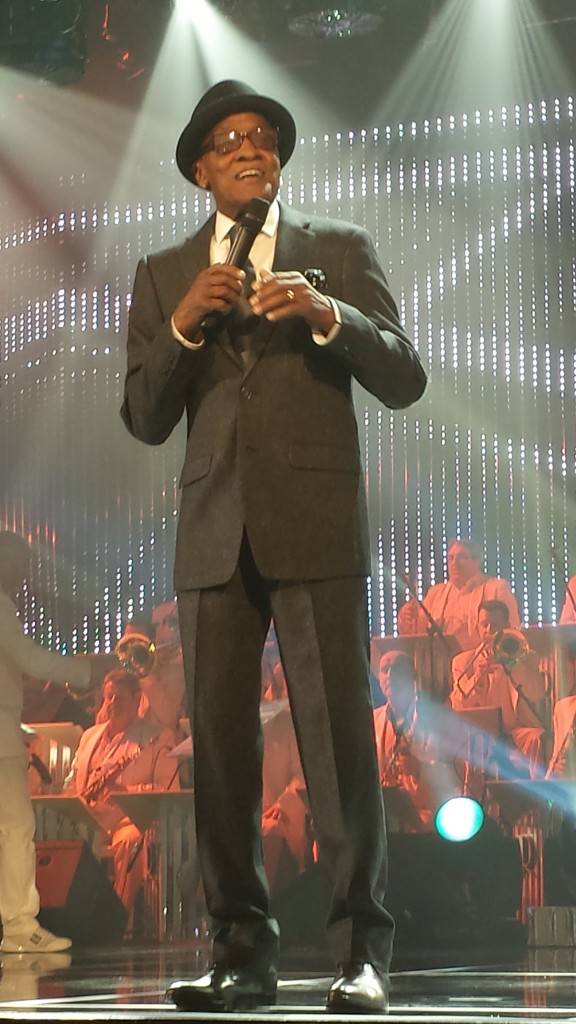 [R]egardless of his “one-hit” stature, Billy Paul was Philadelphia’s answer to Sammy Davis, Jr.
[R]egardless of his “one-hit” stature, Billy Paul was Philadelphia’s answer to Sammy Davis, Jr.
Granted, that one hit completely redefined the concept of a “love song.” It begins with an elongated note from the Gamble and Huff string section, complemented by staccato guitar and piano notes – the musical equivalent of candles being lit. Then, 27 seconds into the track, Billy’s libido, expressed vocally through a rich, smoky baritone enters.
“Me and Mrs. Jones … We got a thing goin’ on.”
Violins become louder – background thrusts of passion: “We both know that it’s wrong, but it’s much too strong to let it go now.”
The extramarital dalliances are outlined and executed. Then at 1:27, Billy unleashes his primal yet orgasmic lion’s roar of unrequited passion. “Mrs. Jones” buys it hook, line and sinker, and the music listening public can’t get enough of it. The tune hits Number One for three weeks.
Barry White may have had “I’m gonna love you just a little more, baby” and “It’s ecstasy when you lay down next to me,” but even he never took his unlimited love this far on vinyl.
 But the media wants us to remember Billy Paul – who sadly passed away from cancer at age 81 on April 25th – as a singer best known for one song. Never mind the fact that he possessed great range vocally as an interpreter for sinners and saints, lovers and fighters. With Billie Holiday as his muse, Billy knew when to belt and when to seduce with his velvety voice.
But the media wants us to remember Billy Paul – who sadly passed away from cancer at age 81 on April 25th – as a singer best known for one song. Never mind the fact that he possessed great range vocally as an interpreter for sinners and saints, lovers and fighters. With Billie Holiday as his muse, Billy knew when to belt and when to seduce with his velvety voice.
Not many artists would dare to sing the first song (“East”) on one of their albums from the point of view of a slave (“No love, no peace, no shoes on my feet, just a shack where I sleep…”). Following the massive success of a song like “Mrs. Jones,” who would be humble enough to record a tune like “I Was Married” and testify, “Billy Paul was married … but it just didn’t work. It did not work!”? Nobody else within the Philadelphia International roster could embody the role of musical preacher with songs like “Peace Holy Peace,” “I Saw the Light” and, one of my favorites, “Enlightenment.”
For that matter, few artists would have the guts to morph the notion of “Say it loud, I’m black and I’m proud” into “Am I Black Enough for You?” despite the inevitable reality of losing fans in the process.
Where other Philly-based groups like Harold Melvin and the Blue Notes and The O’Jays fixated on finding the groove in every song, Billy Paul stood out because he slowed things down; it was not uncommon for his tracks to exceed eight minutes in length or more (listen to the Sun Ra-worthy workout that is “War of the Gods” as well as the accompanying album of the same name). Thriving on spoken-word commentary while remaining socially conscious, Billy Paul helped infuse 1970s soul with some much-needed and welcomed thrust.
All we can do now is tip our hats (fedoras preferred) to him in tribute.
-Ira Kantor
Dig the column? Reach out to Ira via email at ikantor84@gmail.com or on Twitter at @ira_kantor






Be the first to comment!